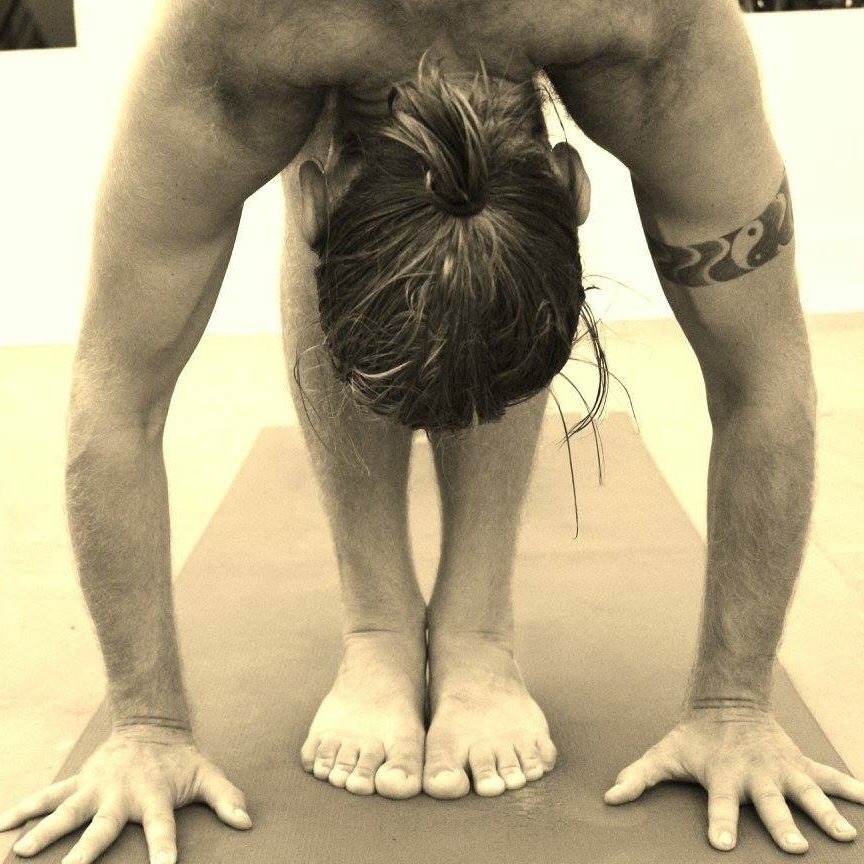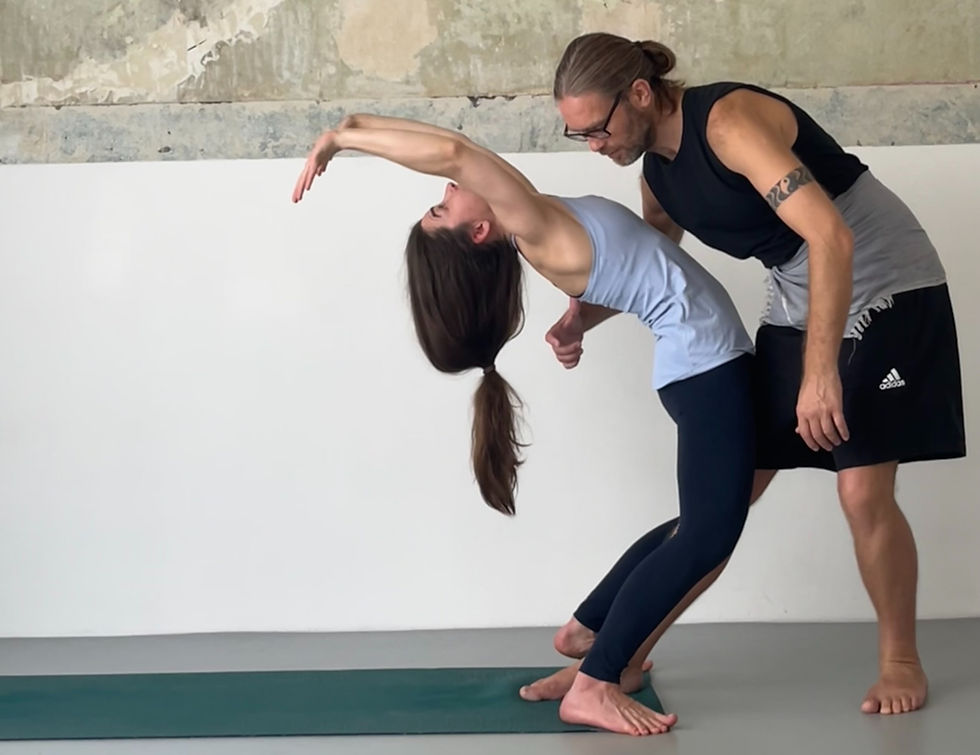Not all Ashtangis are morning people
- Ian Cheney
- Oct 10, 2020
- 5 min read
Updated: Nov 17, 2025
Lockdowns
I don’t know about you, but personally I hated lockdown. Leaving aside the loss of personal freedom, I found myself, also losing the small semblance of social life I had managed to scrabble together over the previous two years (a difficult task for a now 40-year-old in a broadly unwelcoming city). At the same time, I simultaneously learnt that my freelance job (and main source of income) was at risk; while I had to shut down my fledgling Mysore program. All in the space of 7 days. All while living in a part of the world I have never had really desired to be, and far away from what is more commonly known as ‘home’.
That said, I do have to admit a number of positives did emerge from this period. For one, I started reading again and discovered a whole new genre of literature I now savour. I started writing again, the result of which, after several months of journaling has finally found its way to creating this post. But the main thing I discovered – or rediscovered should I say, more than anything else – was sleep.
More than 40 winks?
In some ways, I didn’t exactly get more sleep during those few months. But realise now that I was getting better sleep, sleep that was in tune with my own natural cycle. I had freedom in how and when I went to bed. Any initial plans I may have had to continue getting up early for practice were quickly dropped, and I found myself rolling straight into what I now feel is my ‘normal’ sleep pattern. (For me - circa 12-7.30am).
You see I was never a morning person. Ask any ex-girlfriend of mine about my general grumpiness and shitty moods in the morning. I always found working late much easier and was always much more productive in the hours after the office had gone quiet. The first 10+ years of my Ashtanga life was as an evening practitioner (I know – I’m a heretic!). It was only upon deciding to do teacher training in 2012 that I felt I needed to be ‘serious’ and switch to mornings.
That change was hard. Really hard. I lasted only a few months before my body and mind broke. In hindsight the winter of 2012/13 was not the ideal time to make such a switch (for anyone who doesn't remember - it was bitter), particularly whilst trying to hold down a corporate city job. It was only following my first trip to Mysore later that year that the early morning routine had become engrained.
Treacle memories
I look back now and it feels like the last 8 years have been all a bit of a daze. Somehow, I have managed to function as human being on half sleep and occasional naps. I remember the zombie like being I would turn into when given the 'honour' of first shift in Mysore. After a month of getting up at 2am, the rest of day would typically feel like wading through treacle.
Sunrise dogma
As a teacher, I never understood why anyone would want to practice themselves before teaching. I mean, I know the boss says it’s 'correct method' - but why? (Usually an infuriating question to anything Indian related). To teach, I would typically get up at 5am - is that not early enough?
To be clear, I do realise that it works for some people and I have no wish to criticise people for their choice in this regard. And I will admit, the times I have practiced before teaching, I did find a certain pleasure in it. However, upon reflection of what that pleasure was, I realised it was simply my ego revelling in the fact that I was better than my students because I got up even earlier than they did!!!
From my limited understanding of yoga, I was of the view that one of the central tenets of a yoga practice is to try to overcome one’s ego. So surely acting in as described simply makes for a complete contradiction? And if I'm honest, I can’t help but feel that this is just another little piece of Mysore dogma (of which there is already plenty).
The day today
Now back in Europe, I returned to teaching in July. By September I was broken. Initially I thought I'd come down with 'the Rona' but following a negative test result I realised I was just burnt out. The discipline I used to have for turning out the lights by 10pm had gone. And having rediscovered the joys of everyday activities – reading, studying, eating dinner in the evening, having a social life (crazy I know), I wasn’t prepared to let that go. I was enjoying being a 'normal person' again.. After 2 months of trying to survive on 5 hours sleep a night, something has to give.
I love teaching dearly and hope it is something I do for the rest of my life. It’s rare to find something that am not ashamed to say that I think I am quite good at. There is also something special about teaching in the mornings, when the world is quiet and colours change more dramatically than at any other hour of the day. It’s when you get the most committed students, which as a teacher is all you ever really want.
But for now, it’s time for a bit of a break, from early mornings at least. To use that clichéd yogic phrase, it’s time to follow my Dharma. Perhaps then I will rediscover my mojo in the spring.
Dharma or Dhamma?
For the record, I have never really bought the idea of 'Dharma'. At least not in the Hindu sense of ‘one's obligation to respect to one's position in society', or more commonly 'one's duty’. In fact, I spent a long time confused by this word since I was more familiar with the Buddhist concept of Dhamma. They are often consider the same thing and while there is no direct single word translation I understand Dhamma to mean Truth.
While I can see parallels and cross over between the two, Dharma still feels essentially to be interpreted as fate or destiny. This is a gum sucking no-no in my view. I struggle with the idea that life is in any way predetermined for us. That’s just seems to be a cop out. A lack of comfort with the universe being random and open to chance. A lack of confidence to take responsibility for the way we live our lives.
Dhamma by contrast I believe helps us understand the true meaning of Dharma. Ultimately, that is merely the life we have led up to this point now. The road that lies ahead will fork countless times. Our destinations, our goals and dreams will change and evolve, sometimes just at the point we think we have arrived.
So let go of the idea of a set path into the sunset. As Suzuki it put it: ‘There is no way set up for us. Moment after moment we have to find our own way.’
Your Dharma is, like everything else, this moment. Right now, right here.





Comments